When the first song you write together knocks Janet Jackson off the top of the charts, you’re doing something right…
Jud Friedman and Allan Rich are two New Yorkers who met in Los Angeles in the late 1980s. Both chasing their dreams of becoming songwriters, it’s fair to say they helped to make each other’s dreams come true. We’ve previously talked to the pair about how they wrote Run To You for Whitney Houston’s Bodyguard movie and soundtrack. Already the best-selling soundtrack of all time, the recent vinyl reissue, plus the upcoming biopic Whitney Houston: I Wanna Dance with Somebody, will no doubt lead to a renewed upsurge in popularity for one of the album’s most powerful moments.
Today though, we’re here to learn about another track – the very first song written together by Friedman and Rich, which ended up a chart-topping hit for R&B artist James Ingram. That inaugural success led to careers which, whether together or apart, saw them land songs with some of the biggest stars of the day, including Kenny Loggins, Oleta Adams, Tina Turner, Rod Stewart and Gladys Knight. Friedman now teaches Songwriting, Collaboration and Music Business Law and Contracts at LACM. Here, he’s joined by his creative partner to talk us through a hit that only landed due to the writing talent and dogged determination of its creators…

Released: 25 August 1990
Artist: James Ingram
Label: Warner Bros.
Songwriters: Alan Rich, Jud Friedman
Producers: Thom Bell, James Ingram
UK chart position: –
US chart position: 1
Jud Friedman: “We had a mutual friend named Kathy Spanberger, who was one of the heads of Peermusic – one of the biggest independent international music publishing companies in the world. By independent, I mean not associated with an entertainment conglomerate like Warner or Sony or something.
“I was developing a business relationship with Peermusic, doing one song here, one song there, getting to know one another and thinking about maybe doing a long term deal, which we ultimately did. Kathy said to me, ‘I have this friend Allan Rich, he’s a great songwriter and I have a feeling you guys would be a great match.’ She had a sense of like, ‘I just have a feeling, chemistry-wise, that you two guys would really match.’ So I was like, ‘Yeah, let’s meet.’ And Allan was being told the same thing from Kathy about me.
“I’m pretty sure that we’d met once or twice before, at a party or some music event, but he was doing his thing and I was doing mine. Then, Allan went to lunch with Kathy one day, and they went back to her office afterwards and were shooting the breeze when she said, ‘Whatever happened with Jud, did you guys connect?’ And he said, ‘Oh, no.’ She said, ‘Well, do you have anything for him?’ Allan is primarily a lyricist, with a great sense of melody and music. She was asking him, ‘Do you have any lyrics?’”
AR: “And I said, ‘Yes, I do. But I only have a verse and a chorus and I don’t want to give it to anybody until I have the second verse written.’ She said, ‘Oh, no, I’m calling Jud up right now. And you’re giving it to him,” so that’s what I did.”
JF: “I was between apartments in LA and staying with a friend, because the lease on my earlier apartment had just expired the week before and I needed a place to stay before the new lease kicked in. All I had to work with was a [Yamaha] DX7 keyboard plugged in with an RCA cable to a stereo system because all my music stuff was in boxes. I’m sitting there plonking around and the phone rings. I pick it up and it’s Allan: ‘I’m sitting here with Kathy, she forced me to call you. I have a bit of a song here. But I don’t know, it’s only a little something.’
“I’m going, ‘Okay, well tell me what it is.’ So he reads me the lyric to I Don’t Have The Heart. It wasn’t exactly the way it ended up, but he gets to the chorus: ‘I don’t have the heart to hurt you / It’s the last thing I want to do / But I don’t have the heart to love you / Not the way you want me to.’ I almost fell off my chair. It was so friggin’ brilliant. I said, ‘This is amazing, goodbye.’ I ran to my keyboard and 15 minutes later, I had the verse and chorus.
“It was one of those that just poured out of me, I was so inspired by the lyric. I called him back and I go, ‘I think I have something, I’m really kind of excited about it, you want to come over and check it out?’ So he comes over and likes what I did. So then we write the rest of the song together, the second verse and the bridge. We had a demo of it within six days, and we’d never met before.”

Jud Friedman (left) and Allan Rich. Allan: “I don’t think you could have a great song if your lyric doesn’t elevate your music and your music doesn’t elevate your lyric”
AR: “Songwriters have to be detectives and they wear so many hats. They have to write the song, they have to produce the demo, they have to pitch the song. They have to follow up to make sure it’s getting recorded. They have to make sure that they are getting paid too. Being a little bit of a detective, I found James Ingram’s home address.
“So I sent James the song, it was on a cassette at the time and about a year later I get a phone call, ‘This is James Ingram.’ And he said, ‘I’ve been on the road with Quincy Jones for the last year. I’m home now and I have this box of 400 cassettes. I just got finished listening to the complete box.’ He said, ‘In this whole box, there was only one song that made me cry, and it was yours and Jud’s song. And I promise you that even if Quincy doesn’t want to record it, I’m recording it.’ And he did.”
JF: “So James says he’s gonna record it. But artists say lots of things and you never know what’s gonna happen. They play it for their producer or their record company, who say something the wrong way, and they don’t like it anymore. But he was a man of his word. So he calls me up and I go over to his studio and I play the keyboard part. We’re working on it together and it was amazing. Then we get invited down to the studio where Thom Bell, the famous legendary Philadelphia producer, was producing the record.
“We went to the studio when they were doing the strings. It was the first string session I’d ever been to, and Allan and I were looking at one another, ‘Oh my God, this is just nirvana.’ At that point, it had my piano and I think the final vocal, and they were putting strings on top. We were assuming the whole time that they’re just going to bulk it up and they’re laying it down in an unconventional way. They’re putting strings first, but then they’ll put the band on afterwards. Maybe this is how Thom likes to work.
“Time goes by and Ingram comes out with his record [1989’s It’s Real], and they’re trying to position him in the burgeoning crossover hip-hop world. They’re gonna make him a cool guy. They had recorded a couple of groove-oriented up-tempo things with these videos of him trying to dance, and it looks ridiculous. So they put out these songs and videos. They put one out and it doesn’t do anything. They put another one out, zip. They try one more time, nothing.
“When we finished the record, everyone in the place was like, ‘This is going to be his breakthrough song,’ but they’re not putting it out, they put out three other songs instead.”
AR: “So James storms up to the record label and says, ‘You’re putting out one more single and that’s I Don’t Have The Heart.’ They said the record was dead. But he went up there and said, ‘You’ve got to.’ And they said, ‘We’ll put it out, but we’re not going to promote it.’ So Jud and I, and our publishers… this was our first record, it’s not like we were laying in our jacuzzis in Bel Air, so we decided we believed in our song and scraped some money together. We hired an independent promotion person to see if we could get some movement going.
“A radio station in Florida happened to play the song and all of a sudden it went like wildfire. It just went speeding up the Adult Contemporary charts to No 1 and then it crossed over to the pop market. We could not believe it. When the song was climbing up, Janet Jackson’s Black Cat was No 1. I spoke to James and said, ‘This is never going to happen. We’re not going to number one. We can’t beat Janet.’ James said to me, ‘Allan, you have such little faith. I’m telling you we’re going to number one.’ And so, when it got to No 1, I got this voicemail. ‘Hey Allan, it’s James Ingram. Guess what? We are number one today. Number one! You of little faith.’”
JF: “So, backtracking a little, they finished the record and we’re at another recording session at Allan’s old publisher. They have a great underground studio and we’re there working on some other stuff. Someone runs in and says, ‘I got an advanced cassette of I Don’t Have The Heart.’ So we take a break, we run into the back office and take the cassette and we flip it into this boombox.
“Our demo was just a piano vocal and strings, back in those days you could kind of get away with it. We never really imagined that was going to be the record. I thought it was a blueprint and Thom Bell would blow it up into something monstrous. So we put the cassette on and there’s nothing but piano, vocal and strings. At the end they put in a modulation and they have a tag, but that’s it. So Allan and I look at one another, we go, ‘We’re doomed. No one’s ever gonna play this, it’s a piano/vocal,’ because all they wanted then was really produced stuff and dance stuff.

Jud Friedman and Allan Rich with Bodyguard plaques. Jud: “It was one of those that just poured out on me, I was so inspired by the lyric”
“We had two cuts of the song, we had another cut by Stacy Lattisaw who was a pretty big R&B/pop person at the time. Coincidentally, they both cut the record and put it out as a single at the same time. Neither one was doing anything for the first three weeks. The night before it started climbing the charts, I specifically remember laying in bed thinking, ‘I may have to go drive a truck or something, because I don’t think I can write a better song than this. If this isn’t going to be successful, I don’t know what to do.’ The next day, it enters the AC charts, starts going up, then it crosses over the pop chart. Every time it goes up, week-after-week, Allan and I are liking the piano/vocal approach a little more!”
AR: “I’m not one of these fancy lyricists. I call myself a ‘missionary position songwriter’. I’m very traditional and I just can’t write these incredibly poetic songs. I write conversationally. So I put the person across from me and I remember clearly that I had the first verse, ‘Your face is beaming, you say it’s cause you’re dreaming / of how good it’s going to be / You say you’ve been around / and now you finally found / everything you wanted and needed in me.’
“If I was saying this to this person, what would I say? I had, ‘I don’t have the heart to hurt you / it’s the last thing I’d want to do.’ But I didn’t have the pivotal line. I was walking around and I got a divine intervention moment from a higher power. ‘But I don’t have the heart to love you / Not the way you want me to.’ And the minute that line came down to me, I had goosebumps over my whole body and I knew that that was an important line. I felt like it got delivered to me. I really mean that. I knew at that moment that it was really special.
“I was always very embarrassed to hand in my lyrics, because it’s flat on a piece of paper and they’re simple lyrics. But Jud would always elevate my lyric and make me look like I was a genius. I always say that to him, because it’s true. He really got me, and he got my lyrics. I don’t think you could have a great song if your lyric doesn’t elevate your music and your music doesn’t elevate your lyric. Jud has consistently done that. I’m always making excuses, ‘I’m not sure it’s good enough,’ and then it moves into a realm where I say, ‘God, you took that and really made it special.’ And that’s what I think is special about our relationship.”
JF: “Allan says he’s not a poetic lyricist, and he’s not a flowery lyricist. He is very conversational, but in a good way, and that has its own poetry. It’s the poetry of reality and the poetry of life and interactions. And the thing about I Don’t Have The Heart, among many brilliant things about Allan’s idea for the song, is it’s an example of taking a phrase that’s very well known, ‘I don’t have the heart,’ and flipping it. ‘I don’t have the heart to hurt you but I don’t have the heart to love you.’ He used it in two different ways, and that was poetic. We’ve all been there, sometimes wearing one of the shoes and sometimes wearing the other.”
AR: “I honestly do believe, like Jud, that it’s probably our best song. And I really believe someone should record it again. I believe there’s a second round for that song.”
JF: “Here’s a little coda to the story. Everybody in that Warner Bros office was like, ‘We love the song, but the album is over. We just don’t think it’s the right thing to put it out.’ That was their perspective. They tried three singles, the wrong singles, and they tried to make him into somebody who he wasn’t. I get it, it was a business decision, but it wasn’t working.
“So the day the song goes to No 1, we’re all flipping out, a friend of mine was at Warner Bros having meetings that day. He calls me, ‘Hey, congratulations, man. This is so awesome. By the way, I was at Warner Bros today…’ And he says, everyone was beating their chests like, ‘Oh, my God, we have the number one song in the country. Isn’t it amazing, what a great song!’ And every office he went to, they’re all taking credit for it like, ‘I knew all along we needed to put this song out.’ ‘It was such a great song, we have to put it out. And look, I’m vindicated.’ That’s the music business.”


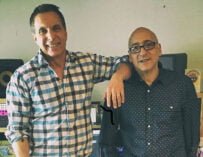

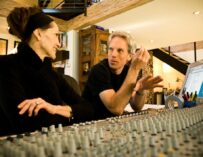

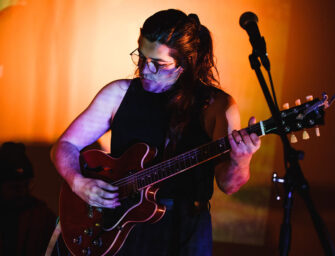

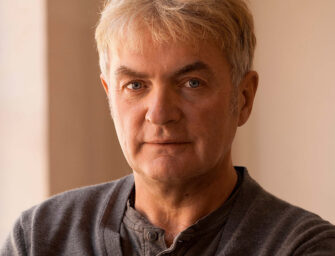
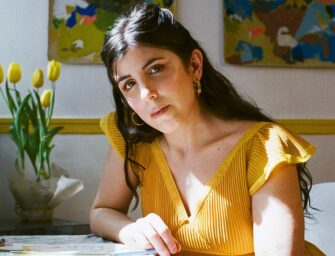





















Related Articles